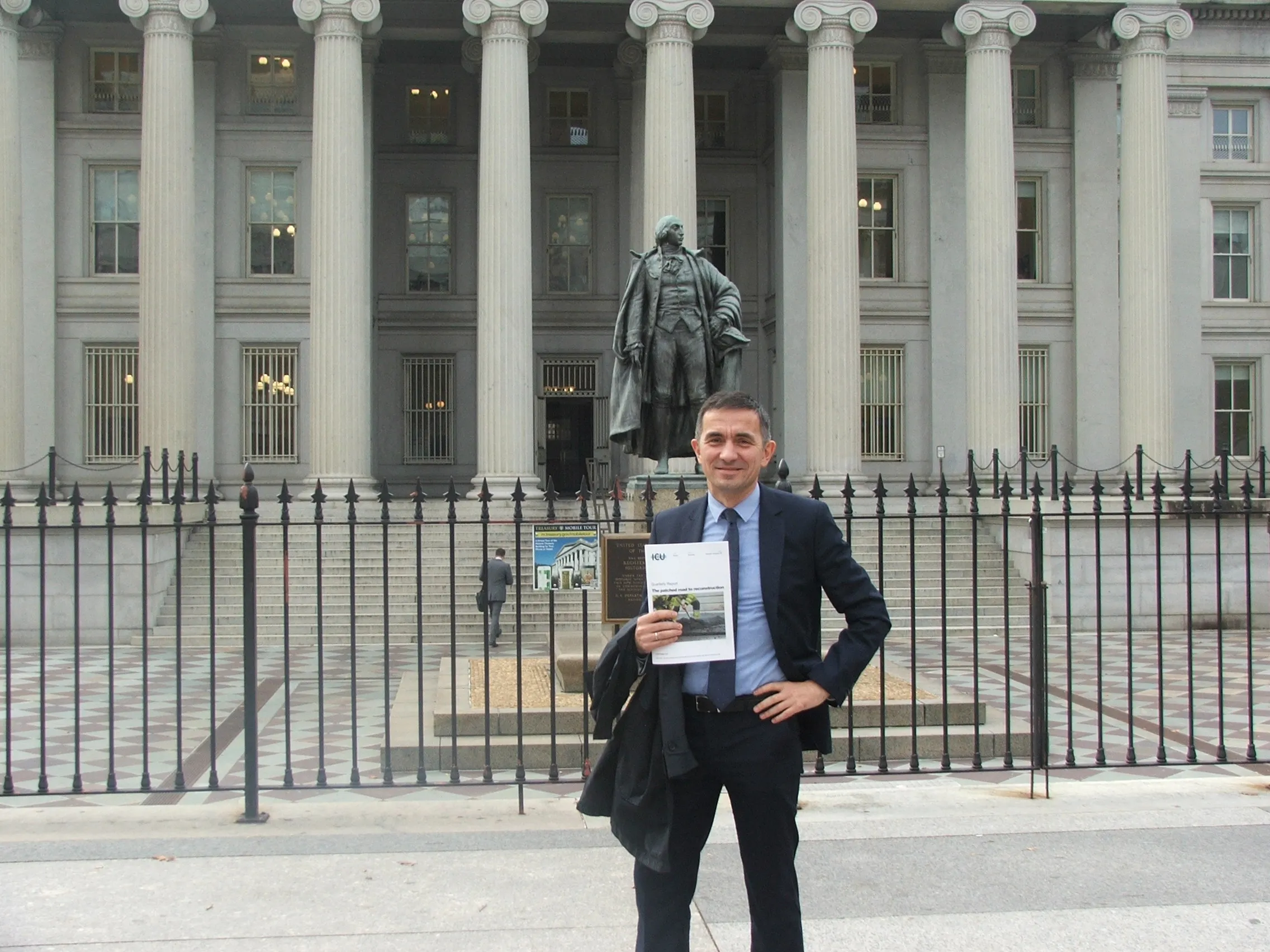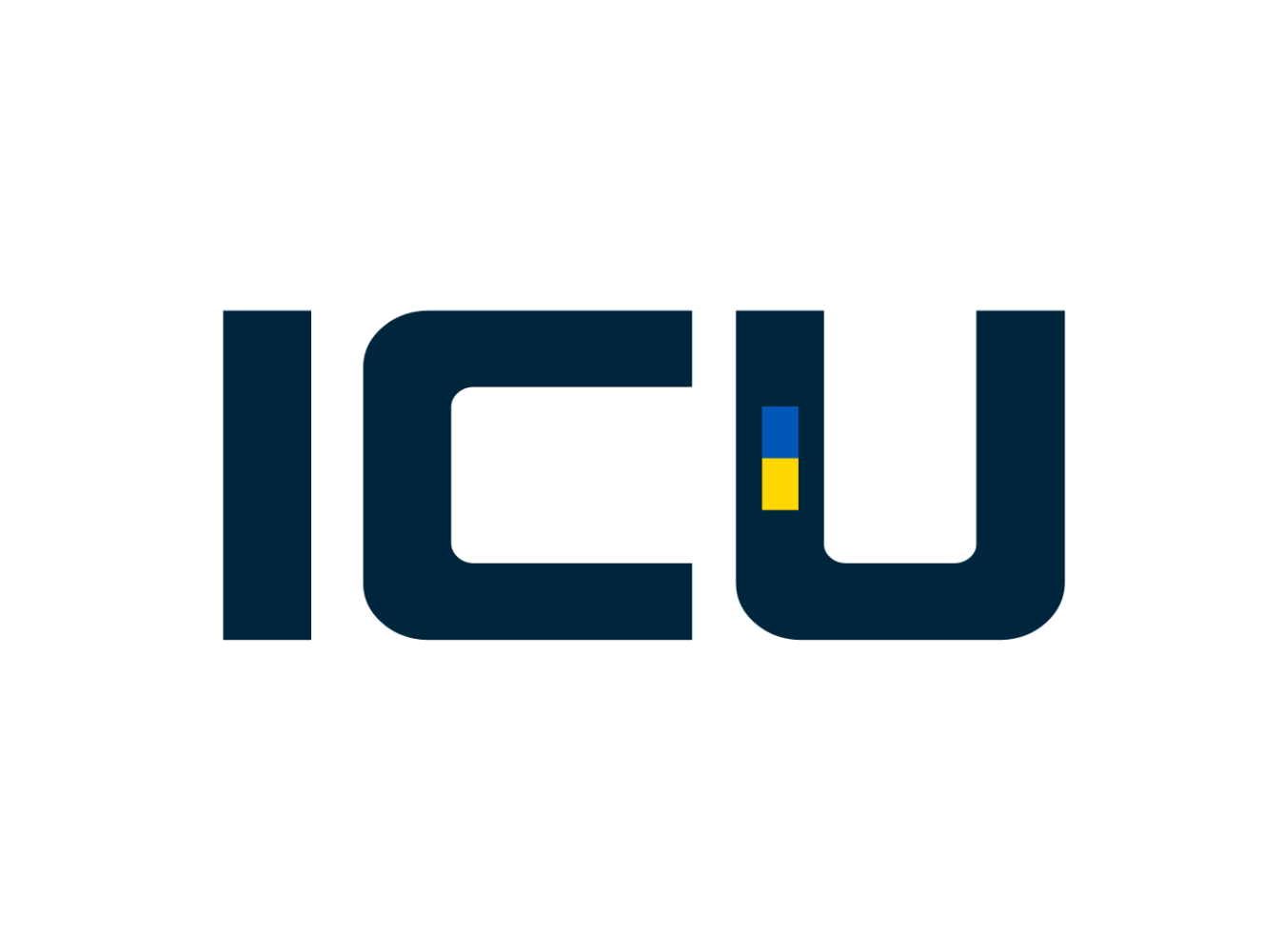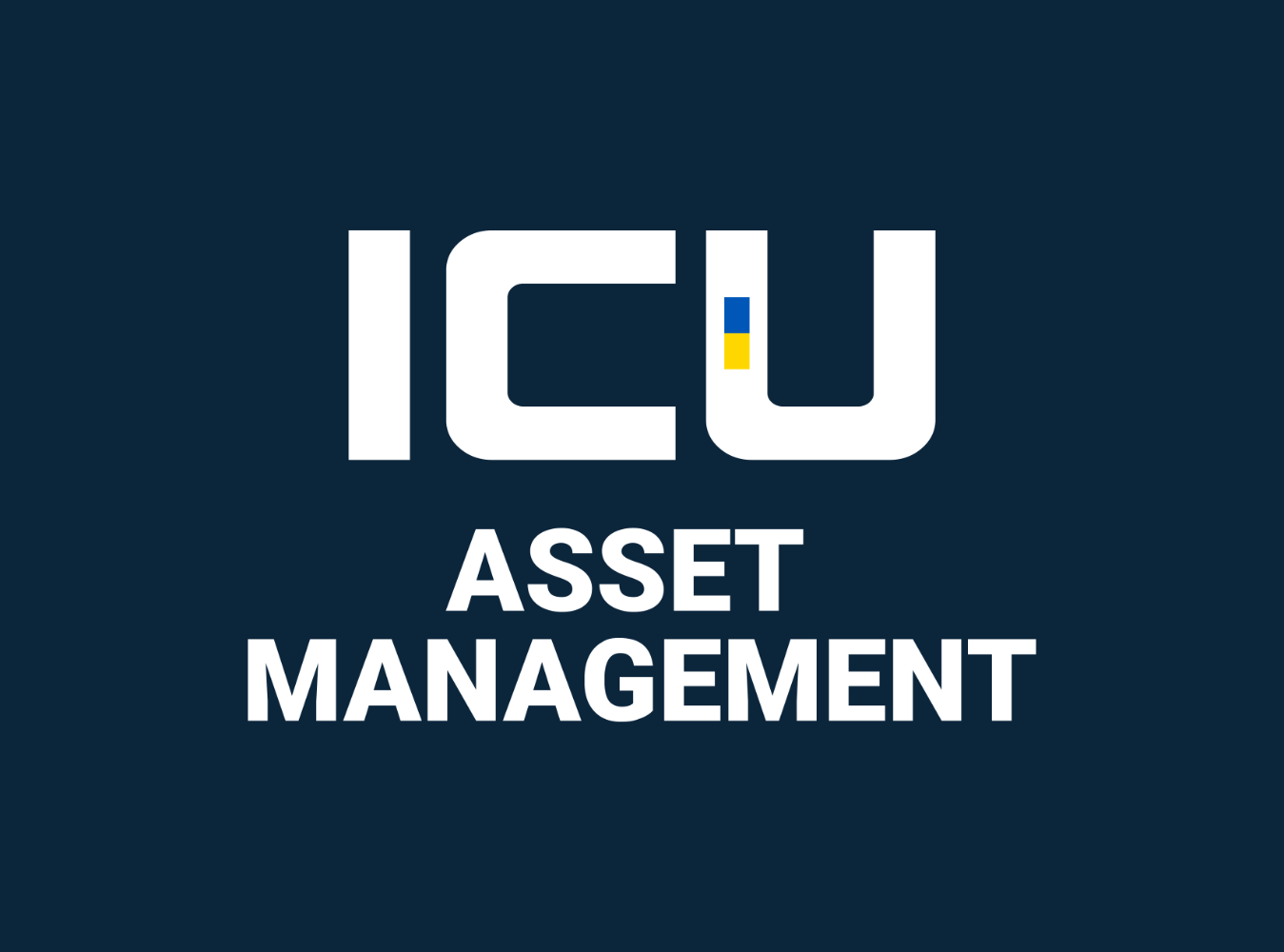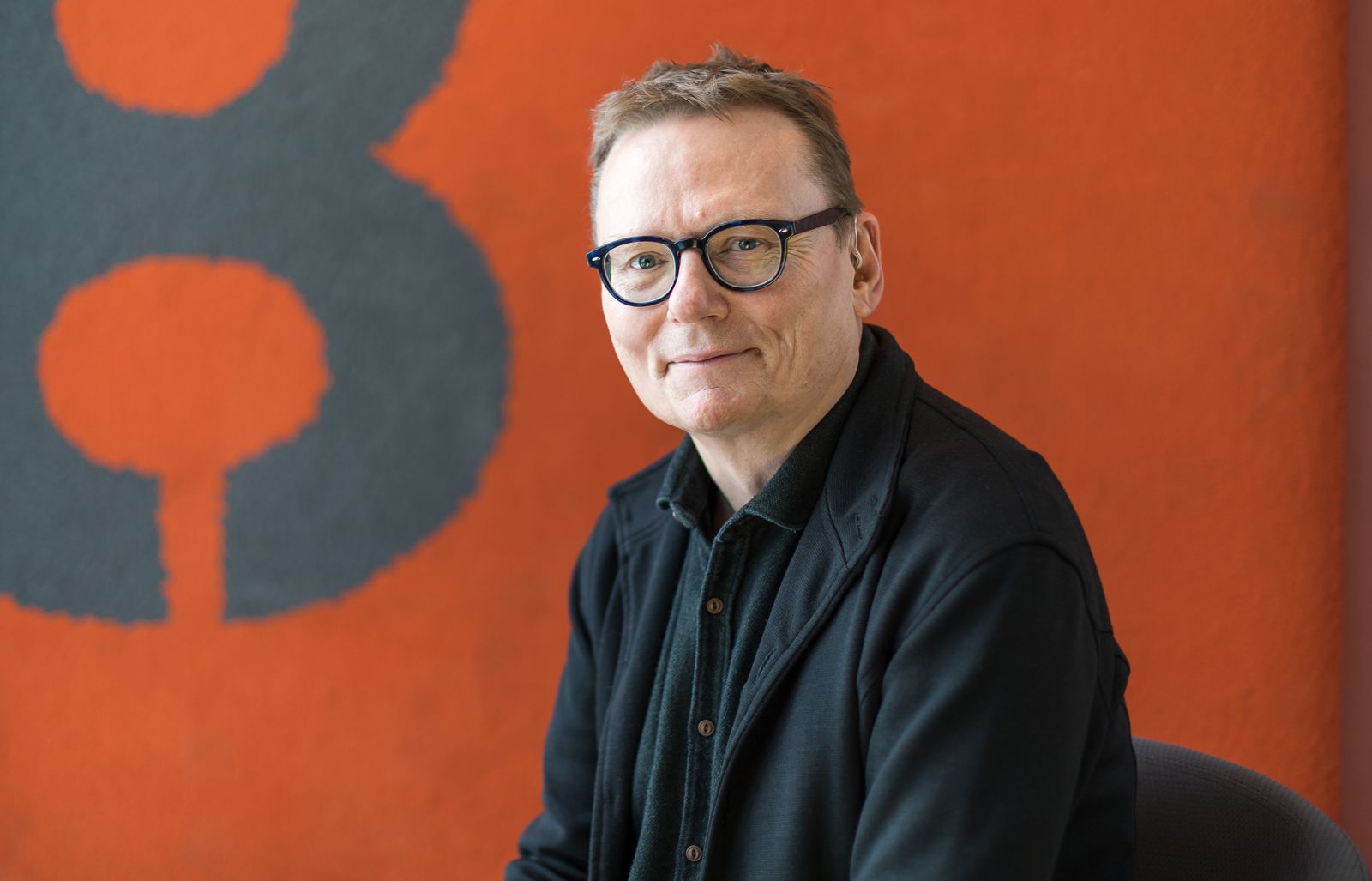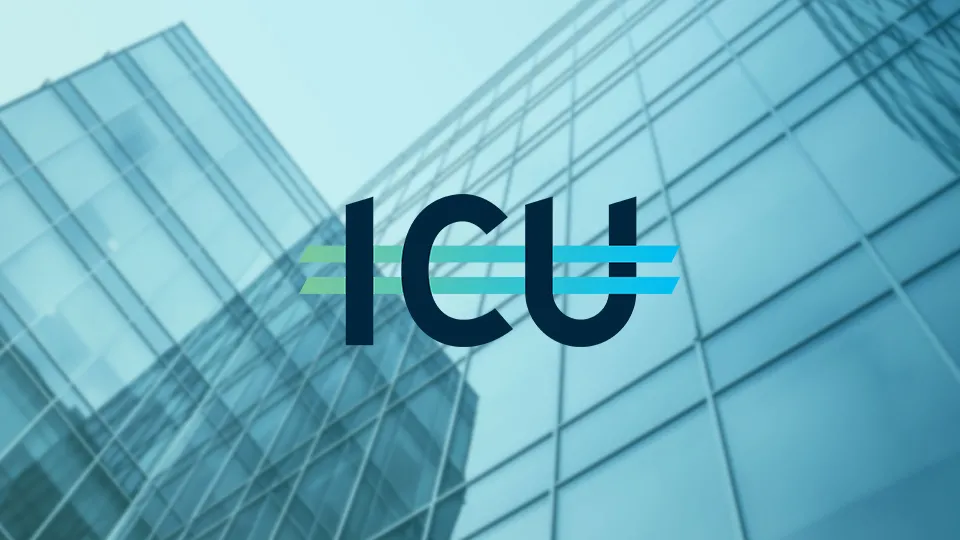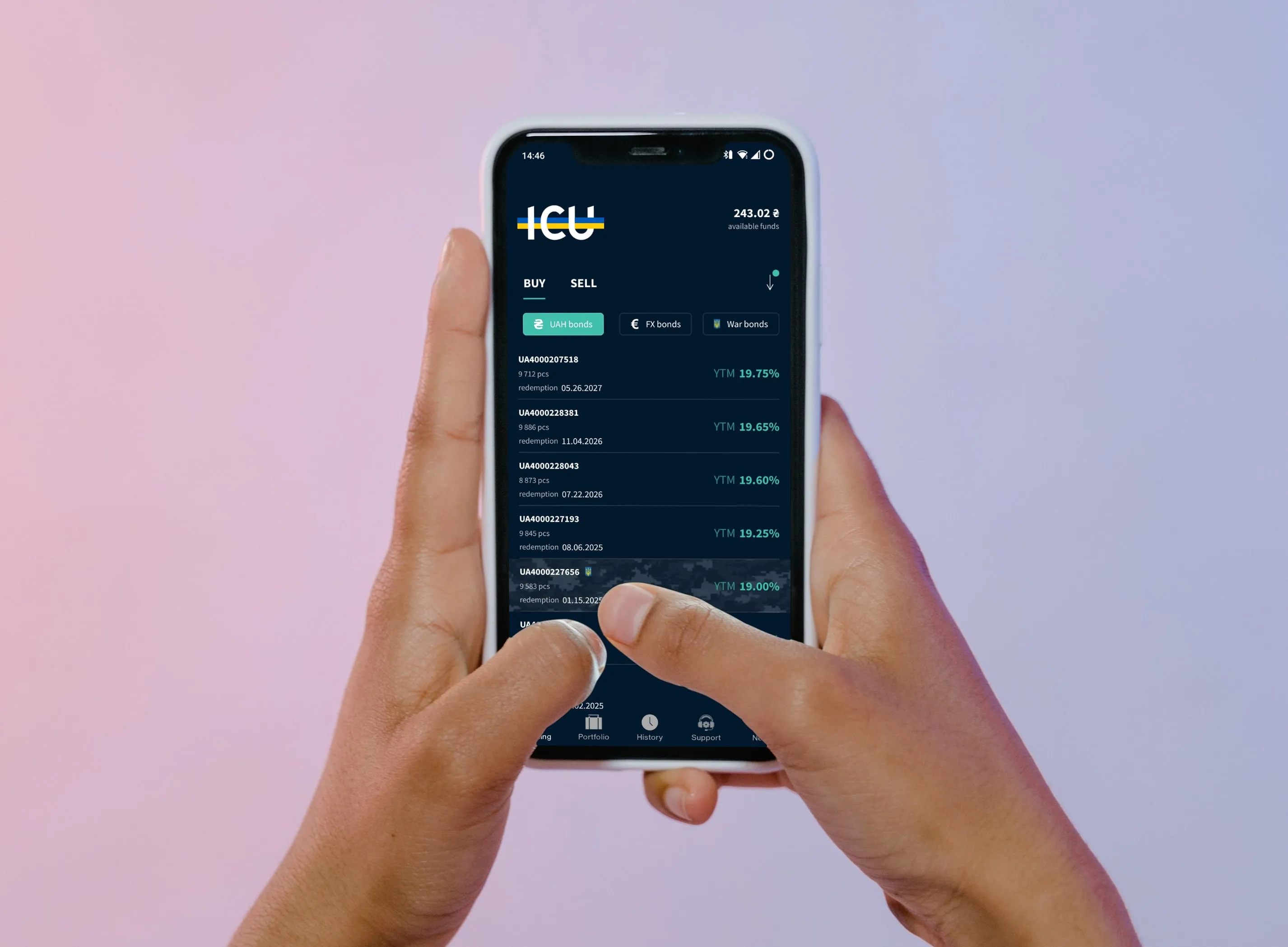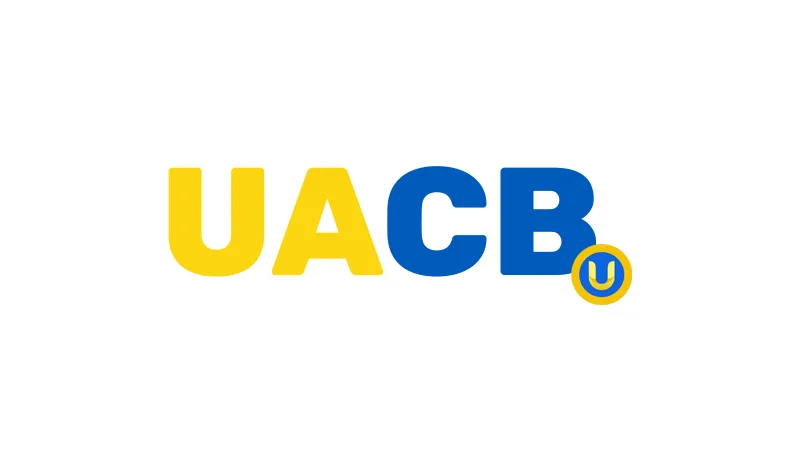Between 30 October and 4 November, Alexander Valchyshen, head of research of the financial group ICU, had a number of meetings in the US with government officials, think-tank economists, as well as analysts and portfolio managers of investment funds. The subject of the meetings was ICU's three-year macro forecast of Ukraine’s economy.
In Washington DC, meetings were held with the US Treasury representatives who cover Ukraine, its public finance development officials, and economists from the International Institute of Finance, which is a global association of the financial industry.
In New York, meetings were held with a number of representatives of the investment funds that deal with Ukraine's tradable securities.
During the meetings, ICU's macroeconomic view of Ukraine was presented along with several other important issues. Among them were: another wave of political pressure coming from opposition on the Ukraine's monetary authorities, the likely impact of the US presidential elections on Ukraine’s economy, and the prices of Ukraine's outstanding Eurobonds.
Valchyshen emphasized that a second wave of political pressure is coming from the opposition against Ukraine's central bank this year (the first, during April-May, failed to gather meaningful momentum). These attempts represent the resistance of a small group of people on the NBU's policy to curtail related-party lending practices that were wide-spread and frequently abused. These practices were primarily responsible for the nation's regularly occurring monetary misfortunes, such as sudden and steep currency devaluations and spikes in consumer-price inflation.
It was also thought at the time that if Trump won the presidential elections (highly uncertain in late October), Ukraine’s reformers would have incentive to redouble their efforts to lead Ukraine’s economic transition away from its unstable past.


